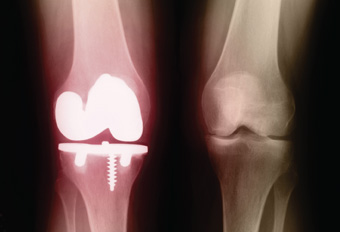

Researchers who surveyed 503 orthopedic surgeons found the doctors could only accurately estimate the price of implantable medical devices between 17 and 21 percent of the time.
"My suspicion was that knowledge would be low, but I think we were all surprised by how little we knew about the price of the devices we were implanting," Dr. Kanu Okike told Reuters Health.
Okike, the study's lead author, worked on the research while at the University of Maryland School of Medicine in Baltimore. He is now an orthopedic surgeon at the Kaiser Permanente Moanalua Medical Center in Honolulu.
Over $150 billion is spent every year on medical devices in the U.S., Okike and his colleagues write in the journal Health Affairs.
The devices themselves are often the most expensive part of surgery, according to the researchers. And prices of comparable devices can vary even if they are equally effective.
Orthopedic surgeons have been asked to help conserve resources by considering the price of devices, they write. But there are several barriers to that information.
For example, some hospitals sign agreements with vendors not to disclose the price they pay for devices and the prices may vary between hospitals and change over time. Also, surgeons don't usually have a need to know the prices.
For the new study, the researchers surveyed 217 senior orthopedic surgeons, known as attendings, and 286 orthopedic surgeons-in-training, known as residents, at seven U.S. academic medical centers.
The doctors were asked to estimate the costs of 13 common orthopedic implantable devices, such as a hip implant.
They were also asked to estimate the price of three pairs of devices which are considered to be equal in quality but differ in price, like plates used to treat broken bones.
The researchers found that over a third of attendings and three quarters of residents said their knowledge of device prices was "below average" or "poor."
Attending surgeons were able to estimate the correct price of the devices - within a 20 percent margin of error - 21 percent of the time. Residents could only estimate the correct price 17 percent of the time.
In general, the participants underestimated the cost of the more expensive devices and overestimated the cost of the less expensive devices for the three pairs they were shown.
"You systematically don't appreciate the amount that could be saved by choosing the lower cost item," Okike said.
Despite the high rate of inaccurate estimates, more than 80 percent of participants said price should play an important part in the process of selecting devices.
Okike cautioned that the results of the new study may not apply to all surgeons. Those in private practice may know more or less about pricing than the surgeons surveyed.
"The results are not surprising that you would have so small a percentage of attendings and residents guess the right price," Jeffrey Lerner, president and CEO of the ECRI Institute in Plymouth Meeting, Pennsylvania, told Reuters Health.
Lerner was not involved with the new study but has researched transparency of device prices.
"I think there should be price transparency so people can compare costs and quality just as they can when they buy a tomato, house or car," he said. "Comparison is an integral part of non-healthcare and healthcare shopping."
"Surgeons face a number of barriers in learning these prices because of the non-disclosure agreements and lack of transparency," Okike said. "I think the net result of that is just higher costs to the healthcare system."
He added, however, that surgeons may become more knowledgeable about prices as accountable care organizations, or ACOs, become more popular and doctors are incentivized to keep costs down.
ACOs bring together doctors, hospitals and other players in the healthcare system to care for patients in an effort to bring down costs.



















